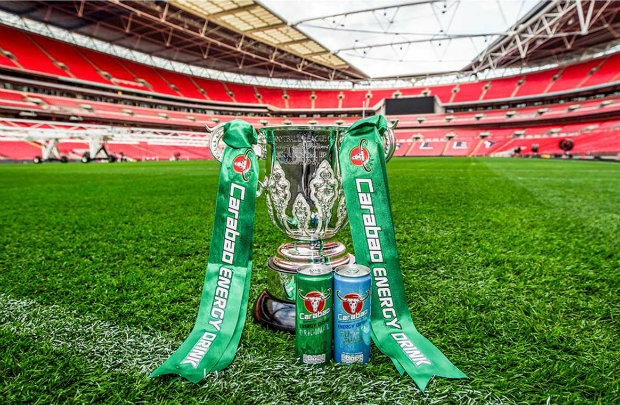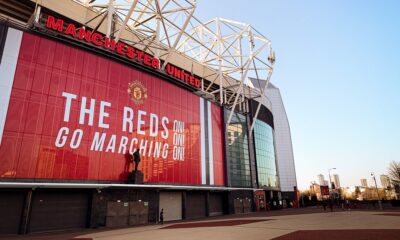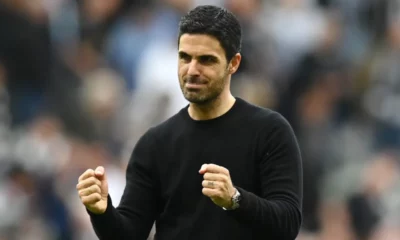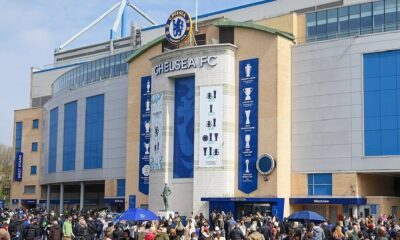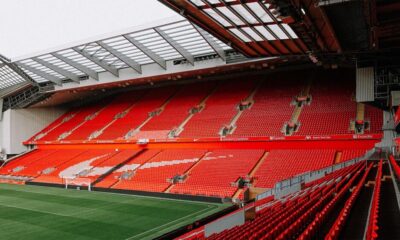Features
Who benefits from the Carabao Cup?
Ties are played by second-string squads, the prize money is low and the European place goes to the 7th-placed team, so who is the EFL Cup actually for?
In earlier rounds, ties are often played by second-string squads, the prize money is low and the European place for the winner often goes to the best-placed Premier League team as the ‘Big Six’ winners have already secured their place in European competition. This begs the question: who is the EFL Cup actually for?
This year’s final will see Chelsea and Manchester City play at Wembley on Sunday 24th February for the first trophy of the season. Since 2008, the final has been won by one of the giants of English football eight times, with five finals being contested by two of the top six teams. And yet, when complaints about the EFL Cup arrive with regularity each season, it is often these same voices questioning the validity of the competition – top-level managers who do not want to risk their best players in a minor competition.
For the fans
Despite the mockery, the EFL Cup is a genuine opportunity for smaller teams to enjoy a cup run and attempt to secure a big day out at Wembley. While it does not have the prestige of the FA Cup, it is still a competition at the top level of English football that offers the chance for ‘minnows’ to attempt giant killings against higher-ranking opponents.
These cup ties may not mean much to larger clubs, but famous wins live long in the memory, especially as many top-level teams have a high standard of reserve players. Derby County’s third round win over Manchester United is a good example of this, as the ‘weakened’ team still included players of the calibre of Lukaku, Martial and Juan Mata.
The removal of the EFL Cup from the calendar reduces the silverware that teams have to realistically compete for. This erosion of competitions for the lower leagues has already begun in the Checkatrade Trophy. The competition was intended as a cup for League One and League Two teams. But in 2016-17, Premier League teams were allowed to enter their U23 squads, undermining the entire premise of the competition and making it even harder for lower-league teams to reach the final.
Outside the elite, most clubs are not winning trophies on a regular basis and many have not won anything for decades. Championship contenders Leeds United’s most recent trophy was back in 1992 and Premier League Newcastle have not won a domestic cup since 1955.
Suggesting the scrapping of a competition because it is inconvenient for large clubs like eight-time winners Liverpool is disrespectful towards clubs beneath them and the loyal fans of those clubs, who dream of one day seeing their side lift a trophy.
Sponsorship
It may be a small factor, but a competition with an uninspiring name does slightly undermine the prestige of the competition. From the first ever sponsor in the 1980s when the Milk Marketing Board renamed the Football League Cup the Milk Cup, to the current sponsors, Carabao, who relocated the third round draw to 4.15am UK time in favour of an Asian audience, poor sponsorship has done little to improve the level of prestige around the competition.
The reputation of the competition has also not been helped by how regularly the sponsorship is perceived to have changed hands. While the FA Cup is also sponsored and changes every four years, the competition generally remains “The FA Cup Sponsored by…” rather than giving over the naming rights entirely. Since 2000, the EFL Cup has been known by four names: Worthington Cup, Carling Cup, Capital One Cup and the Carabao Cup.
Unless the sponsor’s involvement results in significant boosts to prize money, the colour of the advertising hoardings do not make much of a difference to the players and fans, and yet it is often one of the first points of contention for those looking to criticise the EFL Cup.
Testing ground for innovations
One of the great strengths of the EFL Cup is that it is in position to experiment. The EFL Cup permitted a fourth substitute in extra time a year before it was approved by FIFA for the World Cup in Russia. Now the innovation is becoming standard as it is included in the FA Cup and the UEFA Champions League final.
Harrod Sport, the supplier of the posts for Wembley Stadium and most Premier League clubs, believes that the EFL Cup has an important role to play in improving the game:
“Innovations in equipment, rules and technology are vital for the evolution of sport.” said Sales and Marketing Executive Kate Pasque. “In recent years, many of football’s biggest changes have been trialled in the EFL Cup. From the ABBA penalty shootout format to the use of VAR and the removal of extra time, having a platform for experimenting with minor rule changes helps to make the game better for players, clubs and fans at all levels.”
Financial rewards
In the same way that a number of EFL teams threatened a revolt over the distribution of Sky Sports’ TV money, it seems that the EFL competition is only treated with disdain from those connected with larger clubs or those fixated on increased revenues.
It was noted in the resistance to the threat of a breakaway by 15 clubs, that around 30% of their television money comes from coverage of the EFL Cup. While the prize money is not significant enough to interest most teams (just £100,000 for the winner, less than winning a third round FA Cup tie), the competition’s unique gate receipts policy can be highly valuable in sustaining the future of smaller clubs.
Regardless of the venue, clubs each receive 45% of the gate. Manager Nigel Clough’s Burton clash against Manchester United in September 2017 was thought to have increased the club’s budget for the season by around 20 percent. This season saw Burton enjoy a run to the semi-finals. In this round alone, Burton earned 45% of a combined attendance of 38,600 for both matches against Manchester City and £25,000 of prize money. Clearly, the club’s success in the competition is having a significant, positive impact on their financial stability.
To the big clubs, winning trophies is a bare minimum, but there is much more to football than the top of the table. For every other team the prospect of a cup run, a Wembley final and the financial security this can bring is not just the hallmark of a successful season, but an outstanding one.
While fewer midweek fixtures would certainly help the likes of Liverpool and Manchester City’s European chances, the loss of the EFL Cup would only be helping the ‘Big Six’ to the detriment of the other 86 professional clubs in England.

